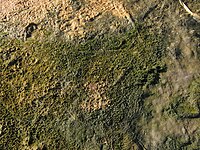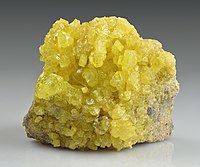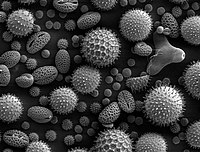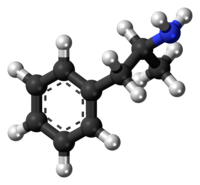
Methanogenic and Sulfate-Reducing Activities in a Hypersaline Microbial Mat and Associated Microbial Diversity
Sign Up to like & getrecommendations! Published in 2017 at "Microbial Ecology"
DOI: 10.1007/s00248-017-1104-x
Abstract: Methanogenesis and sulfate reduction are important microbial processes in hypersaline environments. However, key aspects determining substrate competition between these microbial processes have not been well documented. We evaluated competitive and non-competitive substrates for stimulation of… read more here.
Keywords: sulfate; microbial mat; sulfate reducing; hypersaline microbial ... See more keywords

Microbial sulfate-reducing activities in anoxic sediment from Marine Lake Grevelingen: screening of electron donors and acceptors
Sign Up to like & getrecommendations! Published in 2017 at "Limnology"
DOI: 10.1007/s10201-017-0516-0
Abstract: Sulfate-reducing bacteria in marine sediments mainly utilize sulfate as a terminal electron acceptor with different organic compounds as electron donors. This study investigated microbial sulfate-reducing activity of coastal sediment from Marine Lake Grevelingen (MLG), the… read more here.
Keywords: microbial sulfate; electron donors; sediment marine; sulfate reducing ... See more keywords

Corrosion of 907 Steel Influenced by Sulfate-Reducing Bacteria
Sign Up to like & getrecommendations! Published in 2019 at "Journal of Materials Engineering and Performance"
DOI: 10.1007/s11665-019-03927-1
Abstract: The effect of sulfate-reducing bacteria (SRB) on the corrosion of 907 steel was investigated. Results demonstrated that the chemical composition of corrosion products, the corrosion rate, and corrosion type were altered due to the adherence… read more here.
Keywords: corrosion 907; 907 steel; sulfate reducing; corrosion ... See more keywords

Newly imine-azo dicationic amphiphilic for corrosion and sulfate-reducing bacteria inhibition in petroleum processes: Laboratory and theoretical studies
Sign Up to like & getrecommendations! Published in 2022 at "Applied Surface Science"
DOI: 10.1016/j.apsusc.2021.151531
Abstract: Abstract Oil and gas process faces a large dilemma during the acidizing job. So, dicationic surfactant namely; 1-dodecyl-3-((E)-(4-(((E)-(1-dodecylpyridin-1-ium-4-yl) methylene)amino)-2-hydroxyphenyl) diazenyl)pyridin-1-iumdibromide (SDCAC) was synthesized. Spectroscopic and CHN elemental analysis studies confirmed the SDCAC structure. SDCAC has… read more here.
Keywords: sdcac; newly imine; sulfate reducing; corrosion ... See more keywords

The utilization of aromatic hydrocarbon by nitrate- and sulfate-reducing bacteria in single and multiple nitrate injection for souring control
Sign Up to like & getrecommendations! Published in 2019 at "Biochemical Engineering Journal"
DOI: 10.1016/j.bej.2018.12.006
Abstract: Abstract The application of nitrate-mediated souring control has been proposed as a promising tool. However, the efficiency of this method remains controversial due to several unresolved issues, such as the determination of effective nitrate concentration,… read more here.
Keywords: control; injection; single multiple; reducing bacteria ... See more keywords

Mathematical modelling of microbial corrosion in carbon steel due to early-biofilm formation of sulfate-reducing bacteria via extracellular electron transfer.
Sign Up to like & getrecommendations! Published in 2022 at "Bioelectrochemistry"
DOI: 10.1016/j.bioelechem.2022.108058
Abstract: Sulfate-reducing bacteria (SRB) are the most studied microorganisms related to severe episodes of microbially influenced corrosion (MIC). A mechanism used by SRB to corrode steel alloys is the extracellular electron transfer (EET), which was described… read more here.
Keywords: extracellular electron; corrosion; electron transfer; reducing bacteria ... See more keywords

A new application of anaerobic rotating biological contactor reactor for heavy metal removal under sulfate reducing condition
Sign Up to like & getrecommendations! Published in 2017 at "Chemical Engineering Journal"
DOI: 10.1016/j.cej.2017.03.080
Abstract: Abstract This study evaluated the performance of a continuously operated laboratory scale anaerobic rotating biological contactor (An-RBC) reactor at 24 h and 48 h residence time (RT) for heavy metal removal from synthetic wastewater under sulfate reducing… read more here.
Keywords: metal removal; sulfate reducing; metal; heavy metal ... See more keywords

Substrate competition and microbial function in sulfate-reducing internal circulation anaerobic reactor in the presence of nitrate.
Sign Up to like & getrecommendations! Published in 2021 at "Chemosphere"
DOI: 10.1016/j.chemosphere.2021.130937
Abstract: Nitrate and sulfate often coexist in organic wastewater. In this study, an internal circulation anaerobic reactor was conducted to investigate the impact of nitrate on sulfate reduction. The results showed that sulfate reduction rate dropped… read more here.
Keywords: sulfate; internal circulation; sulfate reducing; circulation anaerobic ... See more keywords

Carbon steel biocorrosion at 80 °C by a thermophilic sulfate reducing archaeon biofilm provides evidence for its utilization of elemental iron as electron donor through extracellular electron transfer
Sign Up to like & getrecommendations! Published in 2018 at "Corrosion Science"
DOI: 10.1016/j.corsci.2018.09.015
Abstract: Abstract Mature sulfate reducing archaeon (Archaeoglobus fulgidus) biofilm at 80 °C was found more corrosive against C1018 carbon steel under organic carbon starvation. After 3-day pre-growth in enriched artificial seawater medium (EASW), C1018 coupons with biofilms… read more here.
Keywords: evidence utilization; reducing archaeon; carbon; carbon steel ... See more keywords

Characteristics of sulfate-reducing bacteria and organic bactericides and their potential to mitigate pollution caused by coal gangue acidification
Sign Up to like & getrecommendations! Published in 2020 at "Environmental Technology and Innovation"
DOI: 10.1016/j.eti.2020.101142
Abstract: Abstract High-salinity acid drainage and spontaneous combustion caused by the oxidation of coal gangue piles are one of the pollution sources that seriously harm the environment in coal mine areas. Using sulfate-reducing bacteria, Bacillus subtilis… read more here.
Keywords: organic bactericides; coal gangue; gangue; sulfate reducing ... See more keywords

Impacts of redox conditions on dissolved organic matter (DOM) quality in marine sediments off the River Rhône, Western Mediterranean Sea
Sign Up to like & getrecommendations! Published in 2020 at "Geochimica et Cosmochimica Acta"
DOI: 10.1016/j.gca.2020.02.001
Abstract: Abstract Sedimentary dissolved organic matter (DOM) is an important pool of intermediates produced and consumed during early diagenesis of organic matter in the anoxic subseafloor. Rapid degradation of organic matter in the coastal sediment results… read more here.
Keywords: dom; sulfate reducing; organic matter; dissolved organic ... See more keywords